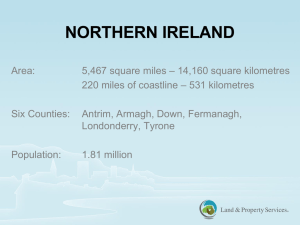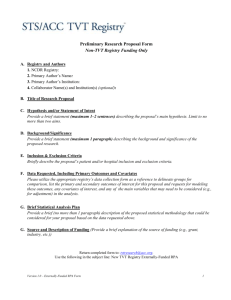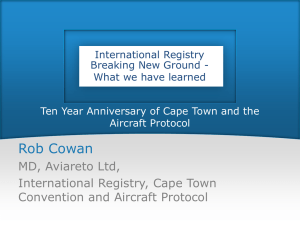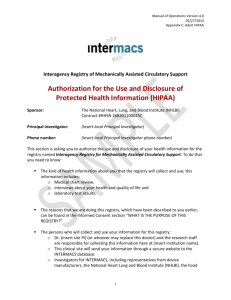Clinical Investigation of the DeBakey VAD® with Comparison to a
advertisement
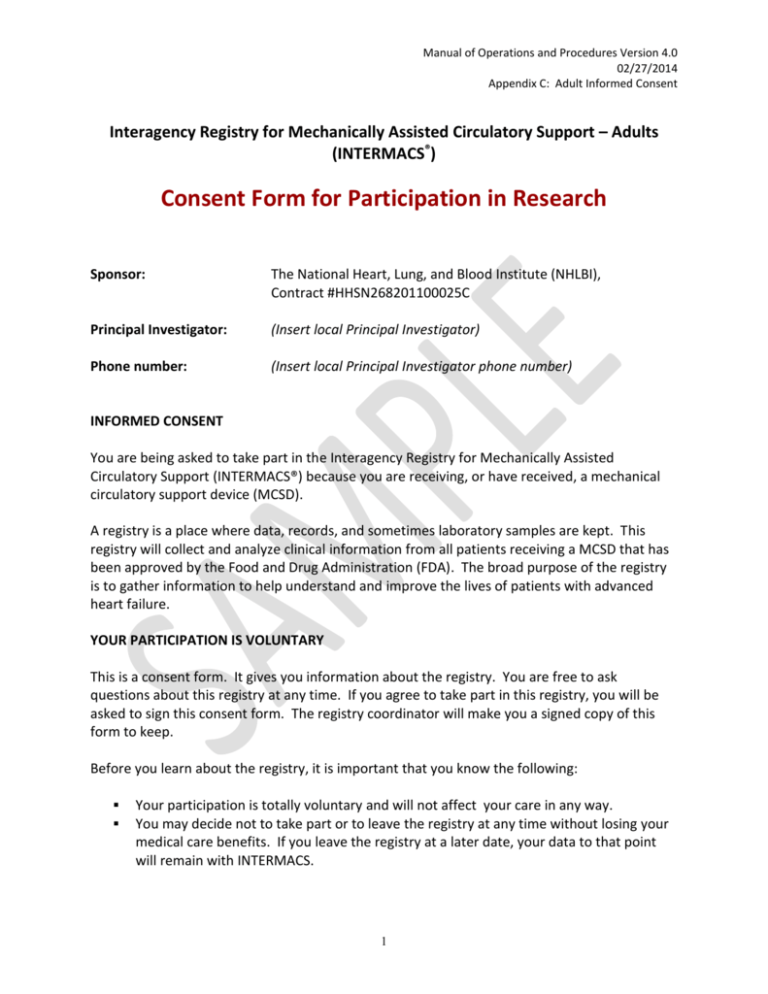
Manual of Operations and Procedures Version 4.0 02/27/2014 Appendix C: Adult Informed Consent Interagency Registry for Mechanically Assisted Circulatory Support – Adults (INTERMACS®) Consent Form for Participation in Research Sponsor: The National Heart, Lung, and Blood Institute (NHLBI), Contract #HHSN268201100025C Principal Investigator: (Insert local Principal Investigator) Phone number: (Insert local Principal Investigator phone number) INFORMED CONSENT You are being asked to take part in the Interagency Registry for Mechanically Assisted Circulatory Support (INTERMACS®) because you are receiving, or have received, a mechanical circulatory support device (MCSD). A registry is a place where data, records, and sometimes laboratory samples are kept. This registry will collect and analyze clinical information from all patients receiving a MCSD that has been approved by the Food and Drug Administration (FDA). The broad purpose of the registry is to gather information to help understand and improve the lives of patients with advanced heart failure. YOUR PARTICIPATION IS VOLUNTARY This is a consent form. It gives you information about the registry. You are free to ask questions about this registry at any time. If you agree to take part in this registry, you will be asked to sign this consent form. The registry coordinator will make you a signed copy of this form to keep. Before you learn about the registry, it is important that you know the following: Your participation is totally voluntary and will not affect your care in any way. You may decide not to take part or to leave the registry at any time without losing your medical care benefits. If you leave the registry at a later date, your data to that point will remain with INTERMACS. 1 Manual of Operations and Procedures Version 4.0 02/27/2014 Appendix C: Adult Informed Consent WHAT IS THE PURPOSE OF THIS REGISTRY? Over the last 25 years, MCSDs have been developed to help the failing heart. MCSDs have been used successfully to support patients until they get a heart transplant, as treatment until they recover, as well as for permanent implantation (placement in the body) or "destination therapy". It is expected that the number of MCSD implantations will increase in future years. This registry will allow investigators to study patient characteristics, device function, implantation procedures, and the possible side effects that can arise with MCSD placement. The registry will also be linked with other existing databases, such as the Scientific Registry of Transplant Recipients that will allow us to understand how the MCSD affects outcome following transplant. WHAT DO I HAVE TO DO IF I AM IN THIS REGISTRY? If you decide to take part in this registry and sign the informed consent, you will: Allow research staff within the hospital to review your medical chart for information on your medical history and medications you have taken or may be currently taking. This information will be entered into a confidential database. You will be asked to complete: two brief questionnaires to describe your quality of life, which will take approximately 20 minutes of your time a limited functional capacity test (how far you can walk in 6 minutes and how fast you can walk 15 feet),and a brief test to measure the function of your nervous system (neurocognitive test), which will take approximately 5 minutes of your time. The medical chart review and abstractions will be done: before your implant, 1 week after implant, 1 month after implant, 3 months after implant, 6 months after implant and every 6 months after that for as long as the MCSD is in place. The brief quality of life questionnaires, walk tests, and the neurocognitive test will be done: before your implant, 3 months after implant, 6 months after implant and every 6 months after that for as long as the MCSD is in place. If you receive a heart transplant, your “follow-up” will occur in the UNOS (United Network for Organ Sharing) transplant database. Your registry data may be merged with transplant data 2 Manual of Operations and Procedures Version 4.0 02/27/2014 Appendix C: Adult Informed Consent and analyzed by registry investigators. If your MCSD is removed and you have recovered, your medical information will be followed for one more year after removal. HOW MANY PEOPLE WILL TAKE PART IN THIS REGISTRY? Over 10,000 people will take part in this registry, with more than 1,000 patients participating per year from 100 or more participating hospitals in the United States and Canada. HOW LONG WILL I BE IN THIS REGISTRY? Participation in the registry begins when this consent form is signed and continues for as long as you have a MCSD implanted. Following heart transplant or death, data collection will stop. If your MCSD is removed due to recovery, your medical information will be collected for one more year. If you transfer to another institution that participates in this registry, you may be asked to sign another consent form (if the institution you transfer to requires Informed Consent for continued participation in the registry). You are free to leave the registry or withdraw your consent at any time, even after you have signed this consent. Your data to that point will remain with INTERMACS®. If the hospital that implanted your MCSD discontinues participation in the registry, then your participation in this registry will end. WHAT ARE THE RISKS OF THE REGISTRY? There is a risk of loss of confidentiality. Every effort will be made to keep the personal information in your registry record private and confidential. This is described in greater detail in the section below, titled “WHAT ABOUT CONFIDENTIALITY?” There are some questions in the quality of life questionnaire that you may consider sensitive. You can choose not to answer any questions that make you feel uncomfortable. WHAT ARE THE BENEFITS OF THE REGISTRY? There is no direct benefit to you from being in this registry. However, knowledge gained from the registry may possibly help those with advanced heart failure in the future. A potential indirect benefit is that you may possibly help doctors and investigators better understand how MCSDs improve or do not improve life for heart failure patients. You will be given any new information during the course of this registry concerning significant treatment findings that may affect your willingness to continue participation. WHAT ABOUT CONFIDENTIALITY? Limited protected health information (e.g., your name; date of birth; last 5 digits of your social security number, or in the event that a social security number is not available, the last 5 digits of the transplant wait list number; health insurance claim number, if applicable; device serial number; implant date; and hospital medical record number) is collected by INTERMACS®. This 3 Manual of Operations and Procedures Version 4.0 02/27/2014 Appendix C: Adult Informed Consent information will allow your data to be linked to the UNOS database should you undergo a heart transplant, to Centers for Medicare & Medicaid Services (CMS) databases for coverage purposes, to cost databases , to FDA databases and to the manufacturer of your MCSD for mandatory medical device reporting. Because INTERMACS® complies with all national patient privacy regulations, all registry data are transmitted from [insert institution name or acronym] to the INTERMACS® database through a secure website and maintained on secure servers with safeguards in place. All Privacy Act provisions are followed in handling and storing patient data, and all INTERMACS® employees have passed background checks for Federal Government clearance to handle protected health information. Protected health information is not available to any employee outside of INTERMACS®, unless required by law (e.g., to ensure your safety), and an INTERMACS®-assigned identification number is used to help maintain your confidentiality. No published or unpublished report or visual or speaking presentation about this registry will include any material that will identify you as a participant in this registry. A description of this study will be available on http://www.ClinicalTrials.gov, as required by U.S. law. This Web site will not include information that can identify you. At most, the Web site will include a summary of study results for all enrolled children as a group. You can look at this Web site at any time. In certain circumstances, (name of institution’s) Institutional Review Board (IRB)/Ethics Board (EB) may request a copy of your records. The job of the IRB/EB is to make sure that patients in studies and registries are protected. If they ask for a copy of your records, we will give the records to them. In addition, under the guidelines of the Federal Privacy Act, the sponsoring agency, the National Heart Lung and Blood Institute (NHLBI) and the INTERMACS®study monitors may also periodically request to review your records. Their job is to make sure that the registry is doing what it is supposed to do and that patients are protected. If they ask to see your records, we will let them. Investigators for INTERMACS®, the NHLBI, representatives from the MCSD manufacturer, the FDA and CMS, or their agents, will use your information to better understand how the MCSD improves or does not improve life for heart failure patients. To help us protect your privacy, INTERMACS® has obtained a Certificate of Confidentiality from the National Institutes of Health (NIH). With this Certificate, the investigators cannot be forced to disclose information that may identify you, even by a court subpoena, in any federal, state, or local civil, criminal, administrative, legislative, or other proceedings. The investigators will use the Certificate to resist any demands for information that would identify you, except as explained below. No voluntary disclosures will be made. The Certificate cannot be used to resist a demand for information from personnel of the United States Government that is used for auditing or evaluation of Federally funded projects or for information that must be disclosed in order to meet the requirements of the FDA. 4 Manual of Operations and Procedures Version 4.0 02/27/2014 Appendix C: Adult Informed Consent You should understand that this does not prevent you or a member of your family from releasing information about yourself or your involvement in this registry if you want to. Note however, that if an insurer or employer learns about your participation, and you say it is all right for them to have this research information, then the investigator may not withhold this information from them. This means that you and your family must also actively protect your own privacy. You have to be careful about whom you permit to look at your research information. The National Heart, Lung, and Blood Institute will obtain information from this clinical study under data collection authority Title 42 U.S.C. 285b. WHAT ARE THE COSTS TO ME? There are no costs to you for participation in this registry. As usual, you and/or your insurance company will be responsible for any costs that are part of your routine care. WILL I RECEIVE ANY PAYMENT? You will not be paid or offered any other compensation for participating in this registry. You will not receive any medications through this registry. WHAT HAPPENS IF I AM INJURED? There is minimal risk associated with this registry data collection. In the rare instance that you are injured as a result of being in this registry, you will be given immediate treatment. The cost for this treatment will be charged to you or your insurance company. There is no program for compensation through either this institution or the NIH. WHAT ARE MY RIGHTS AS A RESEARCH SUBJECT? Taking part in this registry is completely voluntary. You may choose not to take part in this registry or leave this registry AT ANY TIME without penalty, loss of benefits, or change in your present or future care. You will be treated the same no matter what you decide. We will tell you about new information from this or other studies that may affect your health, welfare, or willingness to stay in this registry. If you want the results of the registry, tell the study staff. You are not giving up any of your legal rights by signing this consent form. WHAT DO I DO IF I HAVE QUESTIONS OR PROBLEMS? If you ever have questions about this registry or in case of research-related injuries, you should contact (name of investigator) at (telephone number). If you have questions about research subjects’ rights, you can call (name and title of IRB/EB member) at (telephone number). 5 Manual of Operations and Procedures Version 4.0 02/27/2014 Appendix C: Adult Informed Consent STATEMENT OF CONSENT (NOTE: This is only a suggested signature format. Sites may use their own signature page.) The details of this registry have been explained to you and you have been given the opportunity to ask any questions you wish regarding this registry. The investigator or other person responsible for collecting your information for this registry has told you that your participation in this registry is voluntary. You may be a participant in it only if you wish, and you may refuse to participate or stop participating at any time without affecting your future treatment at this hospital in any way, or your future relations with the hospital or its employees. By signing this consent form, you are voluntarily agreeing to take part in this registry and giving your permission for the registry investigators to collect and use the information needed for the purposes of this registry. If you voluntarily agree to take part in this registry, please sign and date below. _______________________ Participant Name (print) __________________________ Participant Signature _______________ Date _______________________ Name of Legally Authorized Representative (print) __________________________ Legally Authorized Representative Signature _______________ Date _______________________ Witness Name (print) __________________________ Witness Signature _______________ Date PI or Designee’s statement: I have reviewed this registry and the consent form with the participant. To the best of my knowledge, he/she understands the purpose, procedures, risks, and benefits of the registry. 6 Manual of Operations and Procedures Version 4.0 02/27/2014 Appendix C: Adult Informed Consent _______________________ PI or Designee Name (print) __________________________ PI or Designee Signature _______________ Date NOTE: This consent form with the original signatures MUST be retained on file by the principal investigator. A signed copy must be given to the participant. A copy should be placed in the participant’s medical record, if applicable. 7

